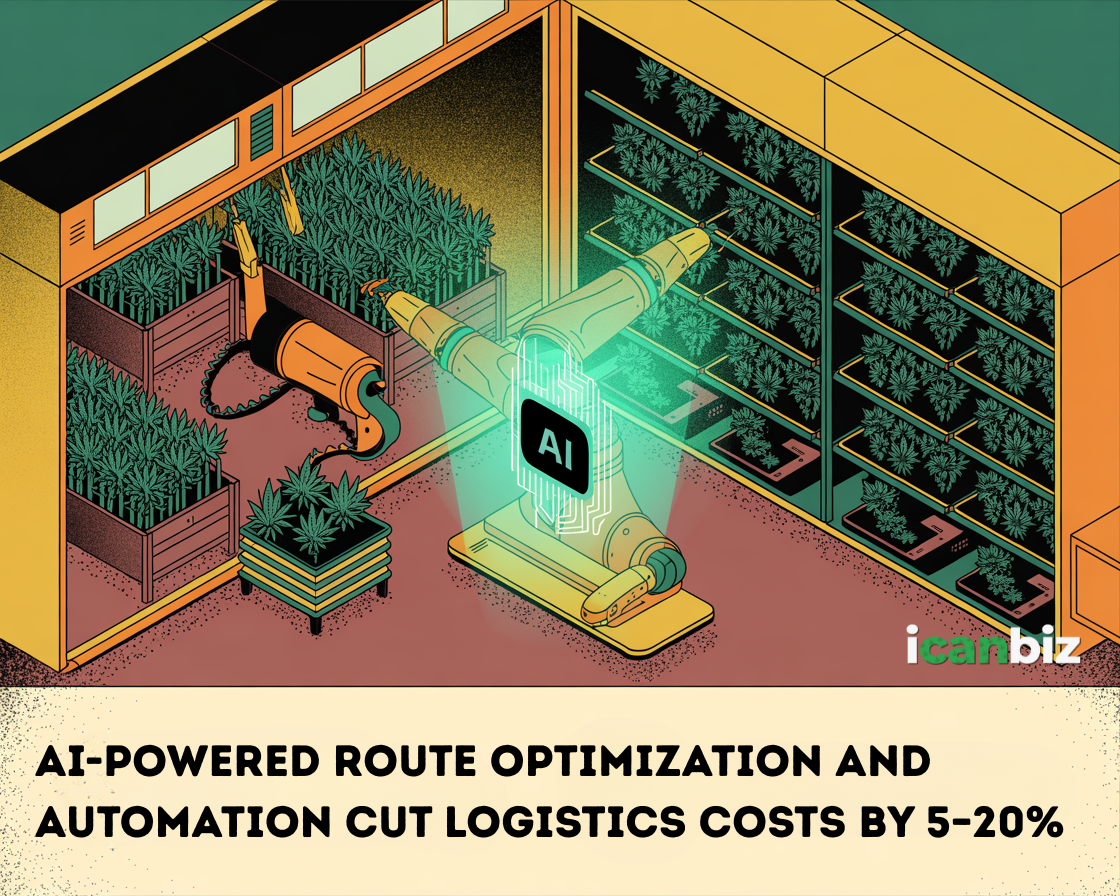
Navigating today’s cannabis industry means juggling evolving laws, high operational costs, and shifting consumer demands. It’s not always easy, but businesses that stay on top of these changes are better positioned to thrive. In such a dynamic space, strategic decision making can make all the difference. Whether you’re launching new products or adjusting your business model, understanding what’s happening in the market helps cannabis businesses grow smarter and more sustainably.
Before We Begin: The Key to Understanding the Cannabis Business
Running a successful cannabis business starts with truly understanding the local market — who your customers are, what they want, and how your competitors price their products. This knowledge allows dispensary owners to tailor their offerings and stand out in a crowded space.
Dispensary owners need to craft effective marketing strategies not only to attract more customers but also to keep them coming back. Building lasting relationships with customers is key to growing a loyal base that supports sustained sales growth.
By conducting thorough market research and analyzing sales data, dispensaries can make smarter, strategic decisions that help them remain competitive and boost profitability in this fast-paced industry. Staying adaptable to changing trends and customer preferences is essential for long-term success.
Running a profitable dispensary requires efficient operations and strong inventory control to reduce costs and achieve higher profit margins. Dispensary owners need to carefully balance offering a wide selection of recreational cannabis products with minimizing the risk of spoilage and waste, which can eat into cannabis sales.
Tip 1: Reducing Operating Costs
For many cannabis businesses, reducing overhead costs like real estate and security expenses is key to improving profit margins in a highly competitive market where competitor pricing can be tight. Investing in energy-efficient equipment and streamlining daily operations not only cuts costs but also helps offset the challenges posed by banking restrictions that affect the industry.
Additionally, outsourcing non-core activities allows dispensaries to minimize overhead without sacrificing quality, which is especially important given the significant upfront investment many cannabis businesses face.
Tip 2: Supply Chain Optimization

Optimizing the supply chain is essential for cannabis dispensaries looking to reduce costs and boost their average profit margin. Effective cannabis inventory management and streamlined logistics systems help minimize waste and ensure products arrive on time, which directly supports a dispensary’s profits. Building strong, reliable relationships with suppliers is another key piece of the puzzle—one that can lead to better pricing and smoother operations.
Want to get more advanced? Think about utilizing AI solutions; according to a recent study by McKinsey & Company, using AI-powered route optimization and automation cut logistics costs by 5–20%.
For dispensary owners navigating this complex process, services like iCanBiz’s concierge team can be invaluable. They guide you through purchasing decisions, helping to simplify supply chain challenges and optimize inventory choices so your business runs more efficiently and profitably.
Tip 3: Marketing and Advertising
Developing effective marketing and advertising strategies is essential for cannabis retail businesses aiming to boost sales and grow revenue. Strategic planning helps dispensaries identify and connect with their target customers, ensuring campaigns resonate with the right audience. Using social media and online advertising allows businesses to expand their reach beyond traditional channels, tapping into a niche market that’s eager for authentic engagement.
Building strong relationships with influencers and partners further enhances brand recognition and drives sales by creating trust and credibility. Ultimately, understanding market dynamics and focusing on delivering an exceptional customer experience are key to standing out and thriving in the competitive cannabis industry.
Tip 4: Loyalty Programs
Implementing loyalty programs is a smart way for cannabis dispensaries to attract repeat customers and encourage them to spend more over time. Offering rewards and promotions not only increases average transaction value but also helps turn occasional buyers into loyal customers who keep coming back.
By leveraging data analytics to analyze customer buying frequency and purchasing decisions, dispensaries gain valuable insights that allow them to tailor loyalty strategies more effectively and maximize long-term engagement.
Tip 5: Upselling and Bundling
Using upselling and bundling strategies is a great way for cannabis dispensaries to naturally increase the average transaction value and boost overall sales. Smart pricing strategies that offer complementary products or services not only make customers feel like they’re getting more value but also encourage them to come back again.
When done right, these tactics improve the overall shopping experience and can build stronger customer loyalty. Plus, by digging into sales data and paying attention to customer behavior, dispensaries can tailor their upselling and bundling efforts to what customers really want, making their offers even more effective.
Tip 6: Providing Delivery and Pickup Services
Offering delivery and pickup services is a powerful way for cannabis dispensaries to enhance customer convenience and tap into a growing segment of the cannabis market. When managed well, these services can drive sales and contribute positively to gross profit by attracting customers who prefer shopping from home.
However, it’s important to carefully manage labor costs and implement efficient logistics to keep expenses in check and maintain healthy profitability. By analyzing customer behavior and preferences, dispensaries can fine-tune their delivery and pickup options to meet demand while optimizing operational efficiency.
The Final Hit: Expert Tips for Dispensary Owners
Staying profitable in the competitive cannabis industry means understanding not just the market but also evolving consumer preferences. A commitment to ongoing improvement and innovation helps dispensary owners adapt and thrive.
By implementing effective strategies to reduce operating costs, manage overhead, and increase annual revenue, businesses can boost customer satisfaction and drive long-term success. Staying up-to-date on industry trends and emerging opportunities is essential for making informed decisions that support financial growth and sustainability.

Legal Disclaimer:
By reading this information presented, you agree to release the author of any liability that comes from using this data. This post contains no legal advice. Claims about cannabinoids have not yet been approved by the FDA.
References
- https://www.nasdaq.com/articles/cannabis-market-forecast-top-trends-cannabis-2025
- https://www.expressnews.com/business/article/thc-cannabis-texas-ban-dan-patrick-sid-miller-19962200.php
- https://nypost.com/2024/09/01/us-news/bargain-buzz-ny-pot-farm-moves-100000-economical-dime-bags-under-legalization
- https://thecannabisindustry.org
- https://www.cannabisbusinesstimes.com
frequently asked questions
What are the biggest challenges in running a cannabis dispensary?
Tight regulations, high operational costs, and shifting consumer trends are major challenges that require strategic planning and flexibility to overcome.
What role does delivery play in dispensary growth?
Delivery services improve customer convenience, expand reach, and boost revenue—especially when paired with strong logistics and labor management.
How can dispensaries improve their profit margins?
By reducing overhead, streamlining inventory, and implementing upselling, bundling, and loyalty strategies that increase average transaction value.
Why is market research important for cannabis retailers?
It helps identify target customers, optimize pricing, and stay ahead of trends—key factors in making informed, profitable decisions.
How do loyalty programs benefit cannabis businesses?
They drive repeat purchases, increase customer retention, and provide valuable data for refining marketing and sales strategies.
